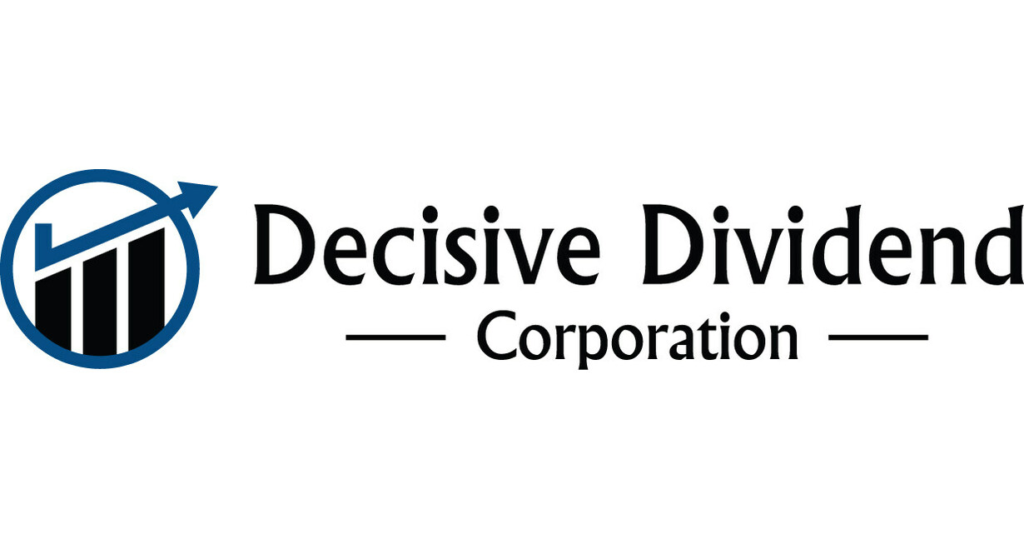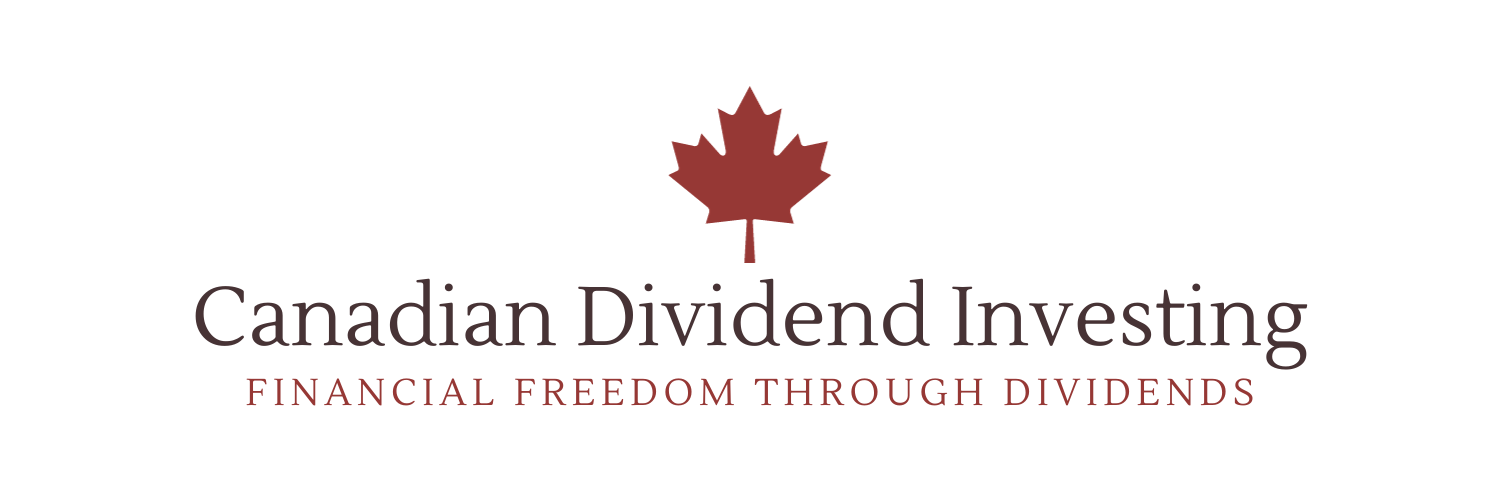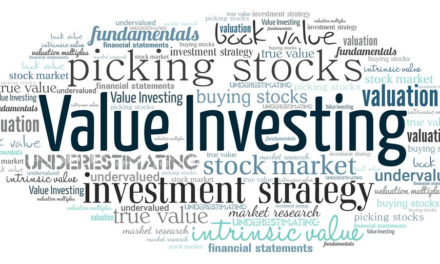There’s a very simple reason why thousands of investors have stuffed their portfolios full of Canadian monthly dividend stocks.
Their bills come in monthly, so that meshes up really well with real life.
Naysayers point out that it’s silly to insist on monthly dividends, and I’m the first to admit they have a point. It isn’t very hard to receive quarterly dividends and plan your life that way, especially since many Canadian stocks don’t just follow the March-June-September-December schedule. A diverse portfolio will ensure you’re getting quarterly dividends every month of the year without really trying.
Still, there’s another reason why investors might go for Canadian monthly dividend stocks. Many of them are good businesses that just happen to pay investors every 30 or 31 days. They’ve delivered solid long-term total returns over time, offer solid payouts that are poised to grow, and offer many of the other things investors are looking for — like good management teams, insider ownership, and solid moats that protect them from competition.
Those are the kinds of stocks investors should look at buying. The fact they pay monthly dividends is just a bonus.
Let’s take a closer look at seven of the best Canadian monthly dividend stocks, companies that look poised to pay at least steady dividends for years to come. Plus, since CDI exclusively covers dividend stocks, I think you’ll see some names on this list you’ve likely never considered before. That’s really what we do here. We uncover under the radar dividend stocks that you should have in your portfolio.

Before we start, a quick note. Unlike similar monthly dividend stock lists you might read elsewhere, this list doesn’t include REITs. We realize REITs are their own separate animal, so we prefer to analyze them separately.
Related: The best REITs in Canada
Also related: How to analyze REITs like an owner
Gamehost

Gamehost (TSX:GH) is a small-cap gambling operator with three casinos in Alberta. It owns the Deerfoot Casino in Calgary, the Boomtown casino in Grande Prairie, and the Great Northern Casino in Grande Prairie. It also owns hotels attached to the Deerfoot Casino and located near the Boomtown Casino, offering stay and play packages for guests.
The company has a number of things going for it. It owns good assets with protection from the provincial government, which puts limits on new casinos. The government gets a percentage of the gaming revenue from each casino, so it has incentive to make sure casinos are ultimately profitable.
The company’s location is also a plus. Alberta has quietly put up excellent population growth numbers pretty consistently over the last decade, with both new Canadians and folks from expensive cities like Vancouver or Toronto increasingly heading to the province. They’re attracted to the province’s consistently higher wages, lower housing costs, and overall better economic opportunity.
The company stumbled a bit during the pandemic, but took advantage of the lull in their business to complete some renovations to its properties. This, plus the pent-up demand caused by COVID, translated into excellent 2023 results. Revenue hit a record high and earnings were up almost five-fold compared to 2020, hitting nearly $1 per share.
To put that into perspective, Gamehost trades at $9.50 per share as I write this, or under 10x earnings. Free cash flow numbers are even better, since those take into account the depreciation expense from the renovations. The stock currently trades at about 9x free cash flow.
In fact, business is so good Gamehost recently hiked its dividend by 33%, increasing the monthly payout from $0.03 to $0.04 per share. That’s good enough for a 5%+ yield today. With a payout ratio of under 50% of free cash flow, the company has plenty of room to hike the dividend over time, too.
Atrium Mortgage Investment Corporation

Atrium Mortgage (TSX:AI) is second on our list of Canadian monthly dividend stocks. It is a non-bank lender that provides residential and commercial mortgages to borrowers in Canada that might not qualify for traditional financing. Founded in 2001, the company has consistently grown until it became one of the largest non-bank lenders in Canada. It has more than $850 million in assets and boasts a diversified, high quality mortgage portfolio with the vast majority of its loans under a 65% loan-to-value ratio.
Atrium charges much higher rates than traditional banks. Its average outstanding interest rate is higher than 11%. Since its borrowers often have no other choice, it can get away with charging such a premium. Its typical customer might include a condo developer, residential developer, or a self-employed borrower. The vast majority of its mortgages are located in the Greater Toronto Area, meaning it has ample expansion potential over time.
Yes, there are risks to owning a non-bank lender. But Atrium has experience lending during tough times, and it handled 2009 and 2020 without many hiccups. It protects investors by keeping loan-to-value ratios low and by disciplined underwriting.
The company pays out virtually all of its earnings back to investors in the form of dividends. It has maintained a $0.075 per share monthly dividend for years now, which is a current yield of 8%. It also offers a pretty consistent annual special dividend, with the most recent payout coming in at $0.29 per share. Combine the two and Atrium’s trailing yield is more than 10%.
We did a deep research dive into Atrium — along with dozens of other stocks — in our premium newsletter. For more info, click here.
Chemtrade Logistics

Chemtrade Logistics (TSX:CHE.un) manufactures and sells chemical products. It has 1,400 employees and operations in 60+ locations in North America and across the world. The business is split into two divisions — sulphur and water chemicals and electrochemicals, which are used in everything from treating drinking water to agriculture, oil refining, and pulp & paper production.
You might remember Chemtrade as a company that cut its distribution back in 2020. Although the pandemic ultimately didn’t affect its business much, 2020 was still an off year and profits were down substantially. It used the cash saved to help pay down its debt, which reduced interest costs and helped juice the bottom line in 2022 and 2023.
Chemtrade reduced its debt from a high of more than $1.5B to comfortably under $900M. By the time you factor in its cash position, net debt is right around $800M.
2023’s results were fantastic, the best in the company’s history. It posted adjusted EBITDA of $490M. 2024 will likely be a little worse, with adjusted EBITDA falling by 15-20%. Before you get too excited about that, keep in mind much of the difference is currency related. Chemtrade is expecting the Canadian Dollar to strengthen compared to the Greenback.
Even with the projected 2024 weakness, the dividend is safe. Free cash flow is expected to be north of $1.30 per share this year. Chemtrade pays out $0.055 per share each month, or $0.66 per year. That gives us a projected payout ratio of under 50%, an excellent margin of safety for a stock currently yielding 7.3%.
A&W Revenue Royalties Income Fund

The A&W Revenue Royalties Income Fund (TSX:AW.un) is the owner of the A&W trademarks in Canada. This ownership entitles investors to a 3% royalty paid on the top line sales of more than 1,000 A&W locations across the country. It’s an attractive investment because it allows an investor to bet on A&W’s continued success without all the miscellaneous expenses of running a restaurant company.
A&W has also grown into one of the more successful fast food chains in the country. After breaking free of its American parent in the 1970s, it has embraced a pretty simple growth plan. It seeks to differentiate itself in a competitive market by doing things like using high quality ingredients, making delicious food, pushing the envelope on innovation, and ultimately offering a profitable opportunity for its franchised operators.
The company has been publicly traded in its current form since 2005. It has delivered consistent top line sales growth, which has directly correlated to higher dividends over time. But it has stumbled a bit lately lately. Higher interest rates in 2023 sent shares about 20% lower as income investors fled stocks to snap up 5%+ yields on GICs and other fixed income instruments. In addition, A&W struggled a bit in a higher inflation world.
This has created an interesting buying opportunity. Shares now trade at just 15x trailing earnings, which is the cheapest valuation (outside of about two weeks in March, 2020) the stock has seen in years. The dividend yield is also comfortably above 6%, an excellent yield for a stock that has traditionally hiked the payout by 3-5% per year. This is exactly the opportunity that should excite long-term dividend investors. The fact this Canadian monthly dividend stock will put cash in your wallet each month is just a bonus.
First National Financial

Founded by Stephen Smith and Moray Tawse back in 1988, First National Financial (TSX:FN) has quietly become Canada’s largest non-bank lender. Unlike Atrium, which lends out its own money, First National does things a little differently. It works exclusively with mortgage brokers, connecting their clients with institutional investors who want the yield and stability of mortgages in their portfolios. It gets paid in two ways — first when it completes a deal and then it gets ongoing revenue to service the loan.
First National has grown into a real behemoth. It now has more than $100B in mortgages under management. Approximately 60-70% of its loan book consists of CMHC-insured loans, meaning it is protected from default risk by the federal government.
The Canadian mortgage market is competitive, and First National has to compete with our largest banks. How does it survive against such strong competition? First, it invests aggressively in technology, including its impressive MERLIN underwriting system. Its centralized business model — it has just a handful of offices across the country and no branches — saves money that’s passed onto customers. These improvements make it the lender of choice for many mortgage brokers.
The two co-founders also remain active in the company today. Collectively, they own some 70% of shares outstanding.
First National has levered their competitive advantages to become one of the best monthly dividend stocks in Canada. It has consistently raised its dividend since debuting in 2006. It has a payout ratio of approximately 70% and, like Atrium, has begun paying out pretty consistent special dividends once per year.
The current payout is $0.204 per share each month. That’s good enough for a 6.1% yield. Combine that with the most recent special dividend — which was $0.75 per share — and the trailing yield is closer to 8%.
Exchange Income Corporation

Exchange Income Corporation (TSX:EIF) is a growth by acquisition play that specializes in buying aviation and manufacturing companies. Since its debut on the TSX in 2004, it has made numerous acquisitions, grown both the top and bottom lines on a per share basis, and paid consistently increasing dividends to investors.
The company has an underrated acquisition strategy. Much like Berkshire Hathaway, it acquires companies with management already in place. It then leaves these new acquisitions alone to continue running their own business, offering operational support, capital to grow, or other assistance. It ensures management of each subsidiary has skin in the game.
The company also targets at least a 15% annual return on every acquisition.
Recently, Exchange Income acquired DryAir Manufacturing, a maker of industrial heaters and moisture removers. Its founder sold to Exchange specifically because “we foremost wanted a partner that held the same values as ourselves and our community. When I met the executive team at EIC I knew immediately we had found our partner.” That’s a pretty glowing endorsement.
One potential issue could be the company’s balance sheet. Its debt-to-trailing EBITDA ratio is around 3.5x, which many say is too high. But EBITDA is expected to grow by 10%+ in 2024 and then a similar amount in 2025. That’ll help debt ratios without the company paying down any of its debt. Combine that with reduced capital expenditures expected in 2024 and 2025 and the potential to pay down some debt, and I think the leverage is a little high, but reasonable.
Exchange pays a 5.4% dividend, a payout that has been raised 17 times since the company’s 2004 IPO. It has a payout ratio of approximately 60%, which is very sustainable.
Decisive Dividend Corporation

It’s easiest to think of Decisive Dividend Corporation (TSXV:DE) as a miniature version of Exchange Income Corp. This Canadian monthly dividend stock is an acquirer of manufacturing companies, hoping to take advantage of the disconnect between private and public valuations.
Some of its brands include Blaze King, which makes wood-burning fireplaces and Hawk Machine Works, a machine shop.
Growth has been nothing short of spectacular. The company had its IPO in 2015 with just $13M in revenues. With its latest acquisition, the top line is expected to exceed $160M in 2024. Free cash flow should surpass $20M, too.
This creates an opportunity for investors to get in at a pretty attractive valuation. As I type this, Decisive has a market cap of just over $200M. This puts shares at just 10x 2024’s free cash flow, which is fantastic considering the long-term growth potential.
Like Exchange Income Corp, Decisive does have a bit of debt. It also has been a serial issuer of shares to help pay for its many acquisitions. But these moves are both par for the course for high growth companies. They’re not really a concern as long as the company stays disciplined.
Including dividends, Decisive shares have more than doubled over the last year. Results have been nothing short of spectacular. Who says you can’t have dividends and growth?
After a recent 12.5% dividend increase, this monthly dividend stock now pays a $0.045 per month dividend. That works out to a 4.9% yield. The payout ratio is fine, too, with 2024’s payout expected to be less than 50% of free cash flow.
The bottom line on monthly dividend stocks
Although I think most investors can have their income needs met via quarterly dividends, there’s a certain psychological comfort in knowing there’s cash coming into your account every month. That’s where these excellent monthly dividend stocks come in. They all have a history of, at a minimum, paying consistent dividends, with most quietly raising their payouts over time.
And there are quite a few pretty impressive yields on this list, too.
If you’re looking for more info on Canadian dividend stocks, join our free newsletter. The best dividend-related writing, straight to your inbox. Sign up below!


